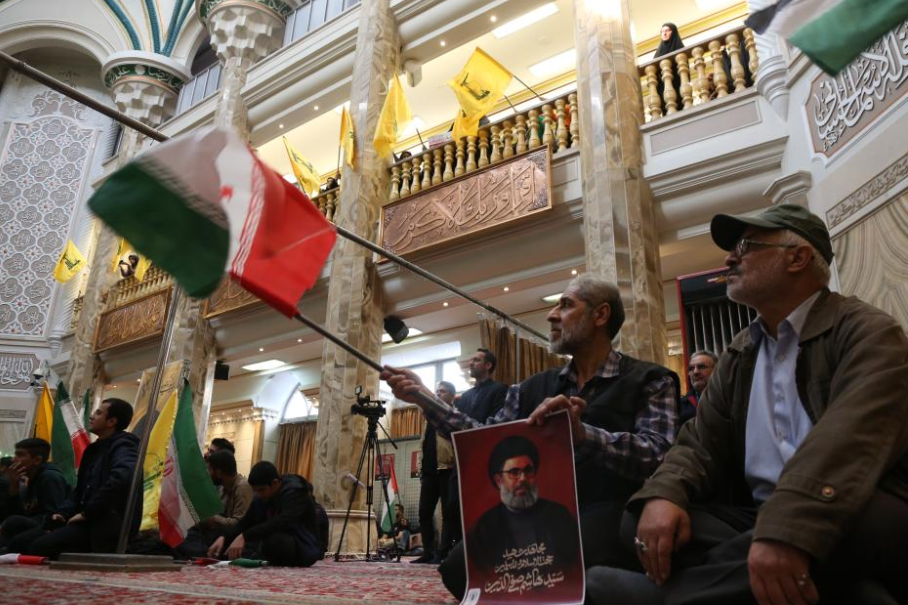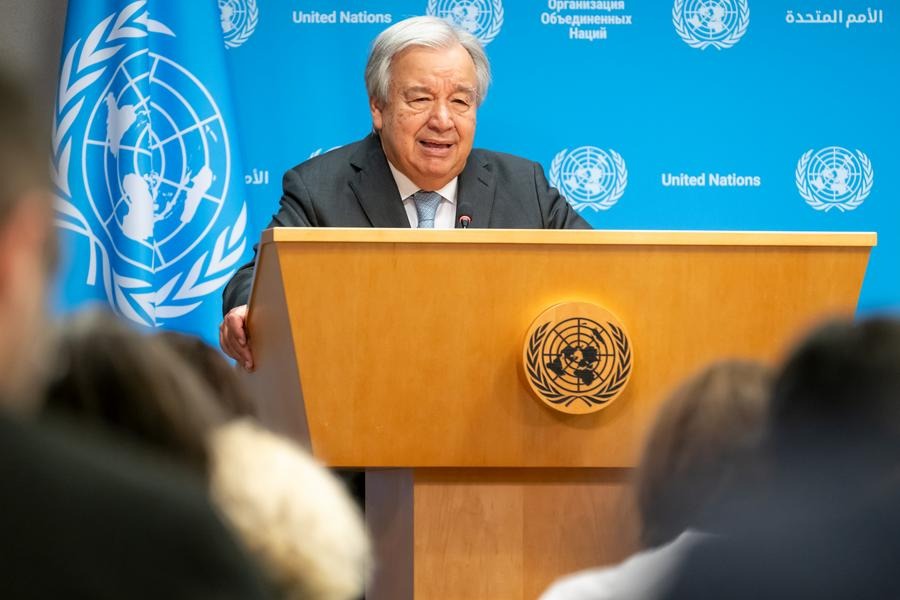Internal divisions add pressure on Netanyahu
Dissolution of war cabinet casts doubts over Israel's objectives in Gaza: Analysts


Internal divisions in Israel's government and the dissolution of its war cabinet have cast doubts on Tel Aviv's objectives in Gaza, amid delays in agreeing on a cease-fire deal and the distribution of aid.
The war cabinet was dissolved as the Israel Defense Forces announced a "local, tactical pause of military activity for humanitarian purposes" between 8 am and 7 pm daily from Sunday until further notice.
The IDF said this was to increase the volume of humanitarian aid entering Gaza following discussions with the United Nations and international aid organizations.
Analysts said Israeli Prime Minister Benjamin Netanyahu's latest move and its timing aimed to deflect international criticisms and pacify domestic woes, which are further delegitimizing his embattled government.
On Monday, The Times of Israel and other media reported that Netanyahu had disbanded Israel's six-member war cabinet. Netanyahu formed the emergency government on Oct 11 to manage the response to Palestine's Hamas and Lebanon's Hezbollah following Hamas' surprise attack on Israel on Oct 7.
The decision was announced amid pressure from his far-right coalition partners to form a new "war cabinet" and the threats of expanding the Gaza conflict to Lebanon. The announcement came soon after the resignation of Benny Gantz, a retired general and member of Israel's Knesset, on June 9.
Nagapushpa Devendra, a West Asia analyst and research scholar at the University of Erfurt in Germany, said dissolving the war cabinet "reflects a shift in Israel's security priorities", with Netanyahu possibly reevaluating the approach to dealing with Hamas and Hezbollah.
She said this may be seen as a tactical maneuver by Netanyahu aimed to further consolidate power within the prime minister's office and centralize the decision-making processes, especially now that his political rival Gantz has quit the emergency government.
"Netanyahu's decision to disband the war cabinet may be a strategic ploy to deflect criticism from the international community and the Israeli public," Devendra told China Daily, noting that Netanyahu may be seeking to enhance his political standing and bolster his reputation on the global stage.
She said this could also serve to placate domestic critics who have raised concerns about the government's handling of security issues.
'Political maneuver'
The timing is "evidence of a calculated political maneuver" with Israel facing mounting pressure from the international community, the West, regional leaders, as well as the Jewish community, Devendra said.
Meanwhile, anti-government protesters took to the streets of Jerusalem on Monday amid growing discontent over Netanyahu's handling of the bombardment in Gaza, demanding the freeing of hostages and even calling for elections.
By sundown, a crowd of thousands had gathered outside the Knesset before marching to Netanyahu's private home in the city.
Separately, the IDF's announcement of a pause in fighting has been called into question with Philippe Lazzarini, commissioner-general of the UN Relief and Works Agency for Palestine Refugees in the Near East, saying that this has not happened.
He said hostilities were ongoing in Rafah and in the south of Gaza and that "operationally, nothing has changed yet", Al Jazeera reported.
In the south, Israeli airstrikes on Tuesday killed at least 17 Palestinians in two of the Gaza Strip's historic refugee camps and Israeli tanks pushed deeper into the enclave's southern city of Rafah, residents and medics said.
In central Gaza, witnesses reported gunfire and artillery shelling near Nuseirat refugee camp, where the civil defense agency said at least 13 people died in two separate strikes on a family home and a commercial building.
Witnesses and the Hamas government media office said there were some strikes and fighting elsewhere in northern and central Gaza.
"The current situation reflects Israel's strategic delaying tactics amid internal turmoil. It is no secret that Israel has long been engulfed in internal conflicts, and now lacks both international and domestic legitimacy," Arhama Siddiqa, a Middle East analyst and research fellow at the Institute of Strategic Studies Islamabad in Pakistan, told China Daily.
She said the 11-hour pause in hostilities offers a little reprieve, with Israeli atrocities reaching new levels daily and children dying every hour, illustrating the "dire choices between death by bullet or starvation".
Agencies contributed to this story.

































